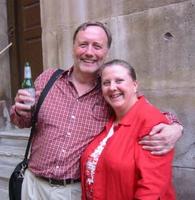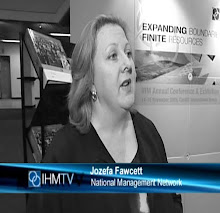
Tonight
KnowledgeWorx joined
David Gurteen at the
University of Greenwich, London, along with a swarm of familiar faces [and some not so familiar] to participate in the dying embers of a Thursday evening
Knowledge Barbeque. The event was organised by Gurteen himself as part of his Knowledge Cafe series and as the drink flowed so did the opportunity to share knowledge and enhance communication amongst a diverse group of individuals.
There was, alongside the delicious food and drink, the expectation that we would all mingle and make new connections and renew old ones, and as such
KnowledgeWorx once again met Lesley, Jonathan, Clive, Shane, Linda, Mary, Hedley, Kanas, Martyn, Denis, Marc, Ian, Fifi, Harry - at least those are the names that that can be remembered at this particular time of 23.45hrs, but there were plenty more..
Matthew from Lambeth very kindly let me loose with his camera and so the obligatory incriminating shots were obtained click on this link via
flickr to see the full slide show.
Business cards were exchanged, promises of contact were made and new connections were formed, with the plan that we would come to the next Gurteen Knowledge Cafe to meet again.
The value of such meetings?
Considerable
The range of connections?
UnlimitedThe desire to repeat the process?
DefinitelyMaybe C U at the next one? Especially once you have viewed the photographic evidence and decided that this is a great unstructured way to do what we humans can do [but sometimes forget to do] best - use our linguistic and other interpersonal skills to meet and share our knowlege with others.
Józefa [
bleary-eyed]
Fawcett [pictured with Gurteen above]
 From a very chilly Melbourne (!), David Simmonds writes:
From a very chilly Melbourne (!), David Simmonds writes: 


